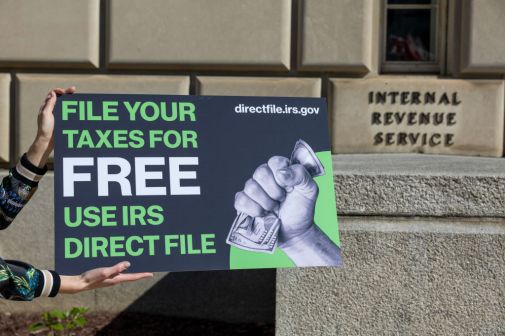House lawmakers Wednesday moved to slash funding for the Internal Revenue Service to its lowest level in years, putting key IT and modernization efforts in jeopardy.
The $10.9 billion allocated to the IRS in the 2015 financial services bill is almost $400 million less than the fiscal year 2014 omnibus, which provided just less than $313 million for business services modernization. The Subcommittee on Financial Services and General Government approved the bill during a markup session and reported it to the Appropriations Committee.
Last week, the Government Accountability Office recommended the IRS develop a long-term plan to deal with an uncertain budget environment, which caused the agency to put two IT and modernization projects on hold.
The IT projects, the Information Reporting and Document Matching program, as well as the Return Review Program, would use various technologies to help detect and prevent fraud. The IRS was looking for an option to purchase a system that could match business tax returns with personal tax returns to determine potential income underreporting – a cheaper alternative to funding development of its own software.
The Return Review Program, currently on hold, was expected to move along this summer, taking advantage of funds appropriated in fiscal year 2014. It was unclear at publication time how the program would be affected by the 2015 budget cuts.
In June 2013, the National Taxpayer Advocate, an independent organization within the IRS, reported that the agency would miss its January 2015 deadline to implement the Return Review Program due to decreased funding in fiscal years 2013. In the same month, the agency’s inspector general released a report that said the agency was losing approximately $5 billion per year due to identity theft return fraud – something the Return Review Program was designed to help combat.
In the year since the report was released, the agency has yet to update the software.
The fiscal year 2015 reduction in funding for the IRS came both as a requirement under the Ryan-Murray bipartisan budget deal and as a result of the IRS’ alleged targeting of tax-exempt groups based on their political ideologies. House Republicans are also targeting the IRS because of its role in administering subsidies under the Affordable Care Act.
“We think more needs to be done to rebuild the confidence of the American people. And we cannot agree to the request that they’ve asked for increased funding,” subcommittee chairman Rep. Ander Crenshaw, R-Fla., said during a June 18 markup hearing. “[The bill includes provisions that prohibit] funds for targeting groups for regulatory scrutiny based on their ideological beliefs, or for exercising their first amendment rights.”
The bill also prohibits the agency from using any funding to implement the individual mandate of the Affordable Care Act, which allows the IRS to impose a tax on an individual without healthcare coverage.
“[This is] yet another misguided attempt to punish the agency for the problems associated with the 501(c)4 unit and to hamstring it during the implementation of the Affordable Care Act,” subcommittee ranking member José Serrano, D-N.Y., said. “Unfortunately the real result of this cut will be to simply prevent the agency from collecting money from tax cheats and to increase our deficit as a result.”
Appropriations Committee Chairman Harold Rogers, R-Ky., said the bill’s reduction in funding was necessary under the Ryan-Murray agreement, but also prioritizes programs that provide critical services and reduces nonessential ones.
“The legislation takes important steps to reign in agencies, which have not been adequately performing on behalf of the taxpayer,” Rogers said.
Colleen Kelley, president of the National Treasury Employees Union, called the bill punishment, not to the IRS, but instead to the taxpayers.
“Essentially, the message of this bill is: We don’t care how long you have to wait on hold or whether you can get your tax questions or your correspondence answered,” Kelley said in a release. “This bill punishes the 150 million individual taxpayers and the 10 million business entity taxpayers who are trying to comply with the tax laws and cannot get the help they need.”






